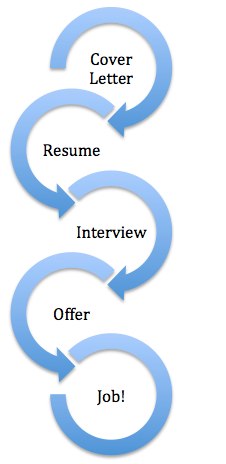San Joaquin County's unemployment rate is higher than that of California, which is higher than that of the nation. That shouldn't surprise anyone that has lived and worked here for any length of time.

There is a belief that periods of high unemployment are a great time for companies to be hiring. Logic would dictate that, since there are many more people in the job market, it must be easier to find that perfect candidate.
As a hiring manager, I can tell you that is a myth.
When the job market is tight, there are even more job seekers for every available job. This means that the typical hiring manager or recruiter has to wade through a lot more resumes, some of which may not even meet the prerequisite experience. Some will likely have even more experience than is required. Job seekers, especially those who have been unemployed (or under-employed) for some time, tend to move the focus of their job search efforts from quality to quantity. This change in focus can result in the job seeker missing an opportunity that is perfectly suited for him.
So, what does this mean for the job seeker?
Well, of course you know that you have to compete with other job seekers. But now you have to stand out even more - simply because of the increased numbers of applicants.
Follow up, but don't be a nag. Follow up by e-mail or a voice mail after hours when you're sure the phone number is a work number (and not a cell phone). From my perspective, the more candidates there are in the market, the less they follow up - again, to my point that many lose focus.
Most importantly, don't lose that focus on the quality of the opportunity. If you are an unemployed restaurant manager, and it is your desire to stay in that field, tighten up your focus to restaurants and hospitality rather than shooting out hundreds of resumes for every job lead with "manager" in the title.
In this job market, it is much more difficult to "promote out" - moving out and up from one company to another. It happens, but it less likely than during periods of high employment. Be willing to move laterally or "demote out" - moving out and down one level. Demoting out is not ideal for everyone. If you are a front-line supervisor leading a team of individual contributors it may be more difficult to do this than if you are a mid-level manager leading other managers.
While there is an increase in the number of candidates for every open position, this is not necessarily a "buyer's market". Since the quality of the job candidates (the sellers) tends to go down during periods of high unemployment, employers (the buyers) can spend more time looking for the right person.
Finally, just an interesting point about the graph above comparing San Joaquin County's and California's unemployment rates. Notice that the shape of data are the same. San Joaquin County's moves are more pronounced, which may have just as much to do with the population size (and the law of large numbers) as it does with the fact that we are a subset of the state. All that means is that you can dispel any crazy thought that our problems in Stockton and the county are not playing out elsewhere in the state.
Unemployment numbers can be depressing. Don't let them get to you... they're just data. Stay informed, but don't obsess. And, as we've already discussed... there are jobs out there!
sources for data: bls.gov, edd.ca.gov









 Your resume has one job: to get you an interview.
This is why you don't need an objective on your resume. Your objective is to get an interview.
Your resume has one job: to get you an interview.
This is why you don't need an objective on your resume. Your objective is to get an interview.

A job fair can be an effective way to meet hiring managers and recruiters in your community and learn about many job opportunities in one day. If you are prepared and use your time wisely, you can walk away with many strong job leads. Many job seekers make careless mistakes that can hurt their chances of success at a job fair. Here are 16 simple tips to make your next job fair a success.